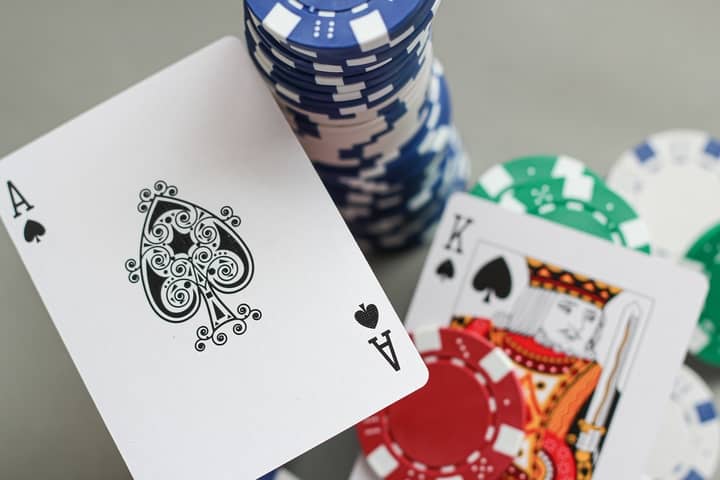Blackjack Insurance
Blackjack Insurance: Is it a Sucker Bet?
Blackjack Insurance Rules
By Arnold Snyder(From Casino Player, May 1997)
© Arnold Snyder1997

Blackjack Insurance Rule
Blackjack players may place insurance bets only when the dealer’s face-up card is an Ace. The idea is to insure your bet against the blackjack of the dealer and then you only get paid for your insurance bet if the dealer has got a blackjack hand. If the dealer hasn’t got a blackjack hand, then you lose your insurance bet. Insurance will become an option when the dealers’ showing up-card is an ace; already holding an ace, there’s a good chance that their second card will have a value of 10, which will give them a blackjack; the actual probability of this happening is around 1 in 3. Blackjack insurance is a side bet available to players when the dealer’s upcard is an Ace. In this scenario, players are presented with an interesting proposition: if you take the additional insurance bet, you can protect yourself in the event that the dealer’s hole card is a 10-value card a.k.a, the dealer has a blackjack. When you take insurance, you are betting that the dealer is going to hit a blackjack (a hand that consists of a ten-value card and an ace after the initial deal). Insurance is offered to players each time the dealer draws an ace as their upcard with the presumption they can protect their hands against a potential dealer blackjack.
Question from a Player: My problem is that I have this feeling that I’m taking insurance far too often. I lose this bet a lot, even though I only take insurance when my true count is +3 or more. (I’m playing mostly in six-deck games in Mississippi and Louisiana.)
On my last trip, I put in 19 hours at the tables over a three day period. I kept track of all my insurance bets. I took insurance 14 times, won 5 times and lost 9 times. I realize this is a very short test from the statistical point of view (I’ve been reading your column for years!), but my experience on all of my trips is similar to this. I lose the insurance bet way more than I win it. This is just the one trip where I kept track of my results.
What’s worse, when I win the bet, I don’t really win anything, I just break even on my hand. Winning is actually more like pushing. When I lose the insurance bet, however, I not only lose the insurance, but I still have to play the hand against a dealer ace, which also often loses. I’m starting to think this insurance bet is just a sucker bet for card counters.
Insurance costs half of your original wager and pays 2 to 1 when the dealer has a natural blackjack. The only way the dealer has a natural blackjack is when his or her down card is worth 10 points. The odds of the face down card being worth 10 points are 9 to 4 against.


Blackjack Insurance: A Side Bet, Nothing More
Answer: Many players are confused about the way insurance works because, in casino jargon, you are “insuring your hand.” Insurance is a side bet, and has nothing to do with the results of your blackjack hand.You are simply betting that the dealer has a ten in the hole. If he does, you win 2-to-1. It is not a “push” for your hand.
For example, you have a $100 bet on the table. You have a 16 vs. a dealer ace. Let’s say the insurance bet does not exist. The dealer peeks at his hole card, flips over a ten, and you lose your $100.
Now, assume insurance is offered. You have a true count of +5, so you put out $50 for insurance. Now, when the dealer flips over his ten, he pays your $50 insurance bet at 2-to-1 ($100), but you still lose your hand, so you break even.
Since, without the insurance bet, you would have been minus $100, this $50 bet gained you $100.
The actual result on your blackjack hand will be exactly the same regardless of whether or not you take insurance. If, for example, the dealer has a blackjack, you lose; if not, then you have to play out your hand vs. whatever he does have.
Also, your analysis of your blackjack insurance results indicates that you did pretty close to what you would expect as a card counter. For the sake of simplicity, let’s say all of your insurance bets were $50 each. Since you lost 9 times, this is a $450 loss; since you won 5 times (at 2-to-1), this is a $500 win. So, you’re $50 ahead of where you would have been had you never taken insurance.
Technically, your fourteen $50 insurance bets would total $700 in action. A $50 win total on $700 action would mean that insurance has paid you at the rate of 6.67% — which is more likely a positive fluctuation in your favor than a negative one.
Remember, if you win your insurance bet just half as often as you lose it, you break even. So, it will always seem like you lose this bet more than you win it, even when you are making money on it. ♠
For more card counting and blackjack analysis, see the Professional Gambling Library.
Return to Blackjack Forum Home